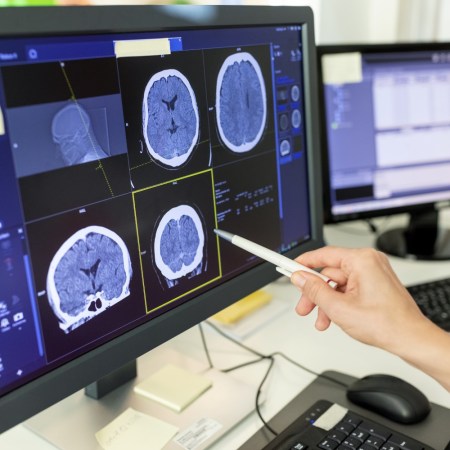The process of diagnosing Alzheimer’s disease in a patient has a number of components. There are some conditions that can be diagnosed after analyzing the results of one test; Alzheimer’s is not one of them — at least, not yet. But if the results of a paper published this week in JAMA suggests, a blood test might soon be able to offer some clarity to people wondering if they have the disease in question.
The study’s authors found that a blood test “had high diagnostic accuracy for identifying Alzheimer disease among individuals with cognitive symptoms in primary and secondary care” — showing more accuracy (91%), in fact, than the judgments of both primary care doctors (61%) and dementia specialists (73%). There’s one caveat there; as the New York Times reports, those figures were based on specialists’ and doctors’ judgments that did not factor in the results of spinal taps or PET scans.
As the researchers pointed out in the JAMA paper, symptomatic Alzheimer’s disease is frequently misdiagnosed, hence the interest in discovering a more reliable and concise way of detecting it. That said, the paper’s lead author Oskar Hansson stressed that this method of testing should only be used in patients already showing evidence of cognitive decline.
“If you would detect Alzheimer’s disease pathology in the person without cognitive impairment, there’s no therapies to offer,” Dr. Hansson told the Times.
Another Alzheimer’s Drug Just Passed a Crucial Milestone
An FDA advisory panel unanimously endorsed Eli Lilly’s donanemabThe results from the JAMA study are promising, but they don’t necessarily herald an imminent change in Alzheimer’s diagnostics. Writing at the Associated Press, Lauran Neergaard noted that several pharmaceutical companies are working to develop blood tests and seek FDA approval for them. We haven’t reached that point in medical history yet — but it does appear to be coming into focus.
Whether you’re looking to get into shape, or just get out of a funk, The Charge has got you covered. Sign up for our new wellness newsletter today.



















